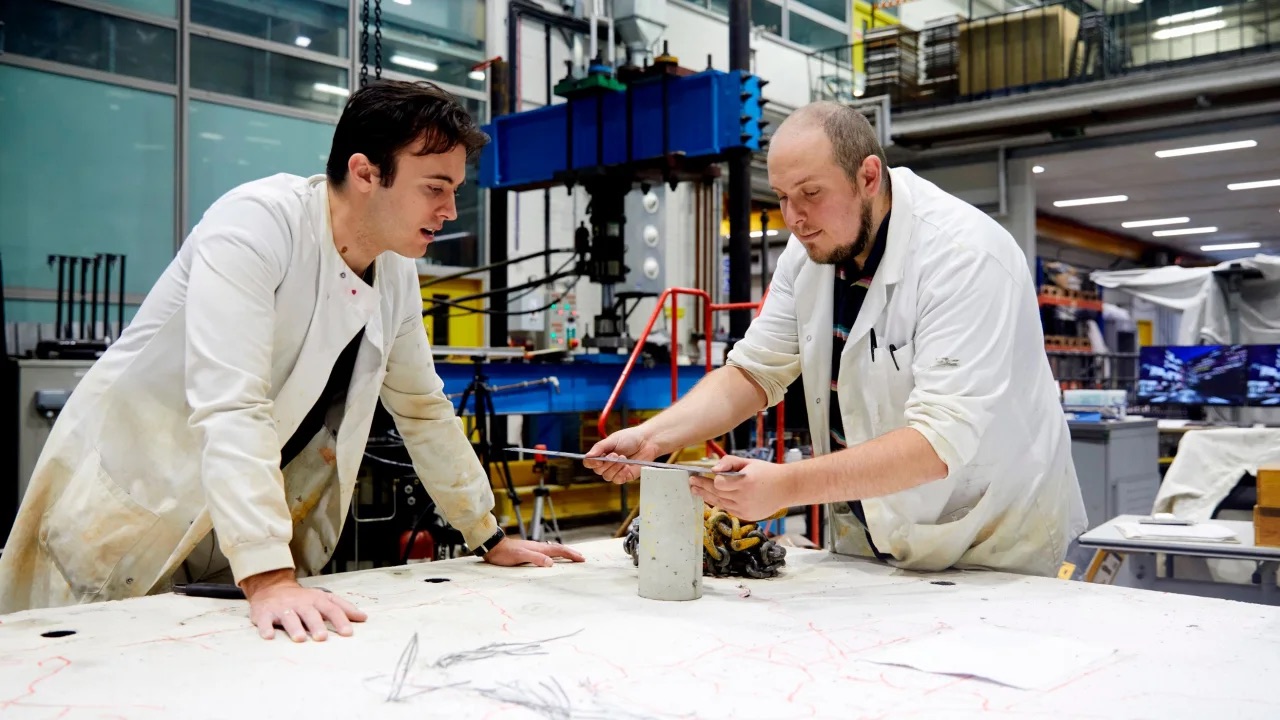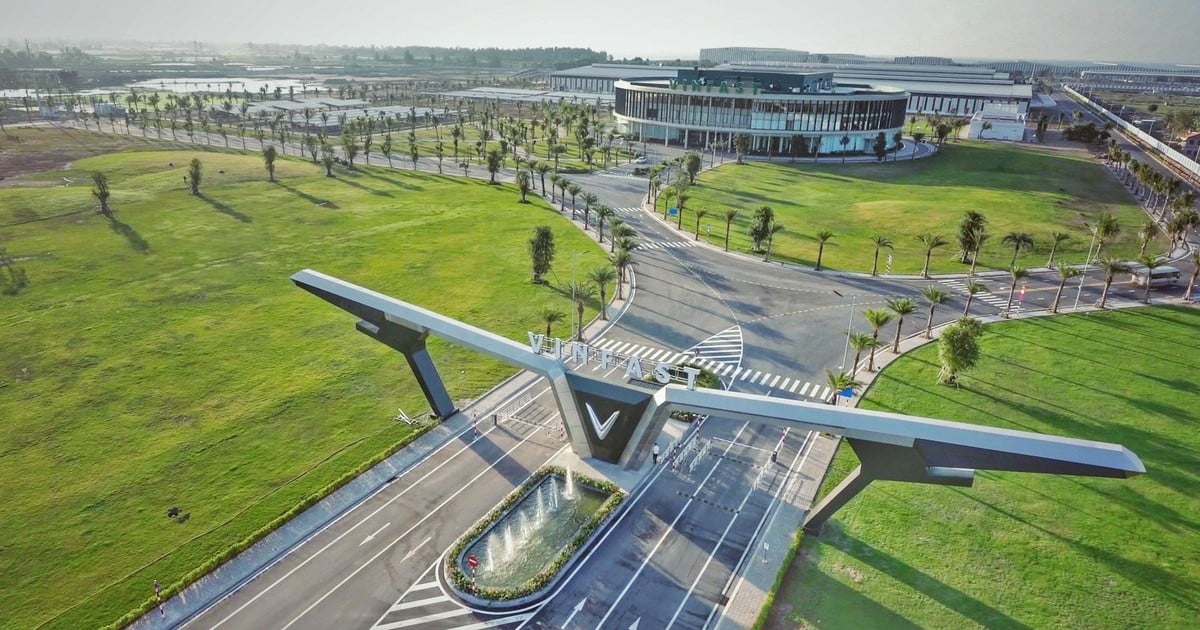Concrete is made from water mixed with materials like sand and gravel, bound together with cement – and it's cement that's the biggest contributor to carbon emissions.

Barney Shanks (left) and Sam Draper are developing a method of producing carbon neutral concrete, at Imperial College London. Photo: CNN
Portland cement is the most common type and is made by burning limestone and other materials in a kiln. According to Chatham House, more than 4 billion tons of cement were produced in 2021, accounting for 8% of global CO2 emissions. As pressure mounts on the construction industry to decarbonize, researchers around the world are looking for ways to make concrete “greener.”
Sam Draper, a PhD student at Imperial College London, and fellow researcher Barney Shanks have come up with a way to create a type of cement that they say could lead to carbon-neutral concrete.
Their process starts with a common mineral called olivine, which is broken down into magnesium and silica. The silica is then used to directly replace 35-40% of the Portland cement used in concrete.
Meanwhile, magnesium is combined with carbon dioxide (CO2) to create magnesium carbonate, which can then be used as a building material including as a substitute for clay bricks and plasterboard.
Concrete made this way is carbon neutral, says Draper, since magnesium carbonate is a stable carbon store.
After starting the trial in 2020, Draper and Shanks launched a company called Seratech in 2021. They are now just weeks away from formally spinning off the company from Imperial College and potentially raising private funding for a larger pilot facility that could produce several tonnes of cement a week.
Seratech's cement performs as well as the “gold standard” Portland cement, Draper said, adding that this is important for acceptance in the construction industry.
Last year, the firm won the Obel Prize, an international award that “promotes architecture that serves people and the planet.”
Describing the winners, the Obel Prize said: “Given the huge carbon footprint of the construction industry, Seratech’s process has the potential to significantly reduce emissions globally and support low-carbon construction in the future.”
Mai Anh (according to CNN)
Source



![[Photo] Reception to welcome General Secretary and President of China Xi Jinping](https://vstatic.vietnam.vn/vietnam/resource/IMAGE/2025/4/15/ef636fe84ae24df48dcc734ac3692867)
![[Photo] Tan Son Nhat Terminal T3 - key project completed ahead of schedule](https://vstatic.vietnam.vn/vietnam/resource/IMAGE/2025/4/15/85f0ae82199548e5a30d478733f4d783)
![[Photo] National Assembly Chairman Tran Thanh Man meets with General Secretary and President of China Xi Jinping](https://vstatic.vietnam.vn/vietnam/resource/IMAGE/2025/4/14/4e8fab54da744230b54598eff0070485)
![[Photo] Prime Minister Pham Minh Chinh meets with General Secretary and President of China Xi Jinping](https://vstatic.vietnam.vn/vietnam/resource/IMAGE/2025/4/14/893f1141468a49e29fb42607a670b174)
























































































Comment (0)